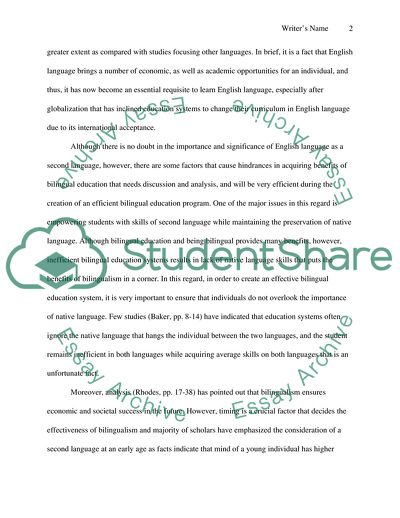Cite this document
(Significant Aspects of Bilingual Education, Benefits of Bilingualism a Essay, n.d.)
Significant Aspects of Bilingual Education, Benefits of Bilingualism a Essay. Retrieved from https://studentshare.org/education/1731263-bilingual-education-and-bilingualism
Significant Aspects of Bilingual Education, Benefits of Bilingualism a Essay. Retrieved from https://studentshare.org/education/1731263-bilingual-education-and-bilingualism
(Significant Aspects of Bilingual Education, Benefits of Bilingualism a Essay)
Significant Aspects of Bilingual Education, Benefits of Bilingualism a Essay. https://studentshare.org/education/1731263-bilingual-education-and-bilingualism.
Significant Aspects of Bilingual Education, Benefits of Bilingualism a Essay. https://studentshare.org/education/1731263-bilingual-education-and-bilingualism.
“Significant Aspects of Bilingual Education, Benefits of Bilingualism a Essay”. https://studentshare.org/education/1731263-bilingual-education-and-bilingualism.


